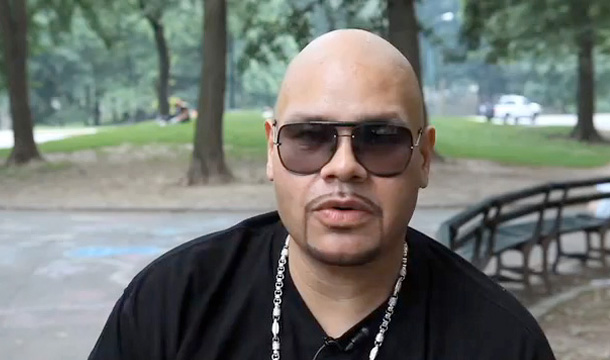Following reports earlier this year of Lauryn Hill and R. Kelly’s tax woes, The Associated Press reports that rapper Fat Joe (government name Joseph Cartagena) is the latest celeb to admit to failing to pay their monetary dues to Uncle Sam.
The Bronx-native plead guilty today (Dec. 20) to two counts of tax evasion for the years 2007 through 2010 in a federal Newark, New Jersey court, due to the fact that most of his earnings came from New Jersey-based companies. Federal prosecutors said the total amount owed is $718,038 from those four years.
Jeffrey Lichtman, Cartagena’s lawyer, assured that his client had “taken steps to resolve this situation” before he had even been charged, saying he had planned to pay off the balance by April 3rd, the time of his sentencing. Cartagena’s bail is set at $250,000, and could face two years in prison, plus a $200,000 fine from the IRS if found guilty.
Fat Joe, a renowned rapper and songwriter known for his work in the hip-hop industry over two decades, has just plead guilty to tax evasion. His actions could land him up to two years in prison as well as hefty financial penalties. This news comes as a surprise to many of Fat Joe’s fans and peers who have seen him rise from the projects of Bronx, New York City to the heights of rap stardom. The details behind this case are still unfolding and readers will no doubt be left wondering: How did one of hip-hop’s most beloved figures end up here?
In 2017, authorities charged Fat Joe with failing to pay taxes on more than three million dollars earned between 2007 and 2010. He was accused of not filing federal income tax returns for those years despite having multiple sources of income including music sales, tour dates and other business ventures. Since then he has been facing serious legal consequences that could potentially put an end to his successful career if he is ultimately convicted.
With much at stake, it is obvious that this case will draw attention from both inside and outside the music world. As we await further developments in this story, now is the time to take a closer look at how Fat Joe ended up here – and what kind of impact this might have on his future.
Background Of The Case
The case of rapper Fat Joe’s tax evasion has been making headlines recently. In December 2020, the Grammy-nominated artist pleaded guilty to failing to pay taxes on $3 million in income from 2007 to 2010. He was accused of owing more than $700,000 in federal taxes during this time period.
The plea agreement that he reached with prosecutors included a two-year prison sentence and an additional year of supervised release. The rapper also agreed to pay restitution for all unpaid taxes due.
As part of his agreement, Fat Joe will be required to file accurate returns going forward and comply with all applicable laws and regulations related to the payment of taxes. While this case is still unfolding, it serves as a reminder that everyone must take responsibility when it comes to paying their fair share of taxes.
Potential Consequences
The consequences of Fat Joe’s tax evasion conviction could be severe. In addition to his two-year prison sentence and an additional year of supervised release, he may also face hefty fines. Depending on the amount that is ultimately determined by the court, it could potentially reach into the millions.
Furthermore, this case has brought attention to the rapper’s finances and business dealings that would likely have remained private otherwise. This can lead to other legal issues if any discrepancies are uncovered during the investigation or prosecution process. His reputation as a celebrity artist could suffer significantly due to these revelations.
Additionally, potential future employers may view him with suspicion when considering whether or not they want to hire him for work opportunities. This criminal charge will stay on his record permanently and thus might impact any job prospects down the line.
Conclusion
I. Summary of Case
In the case of Fat Joe, he has recently pled guilty to tax evasion and could face a two-year prison sentence. The artist had failed to pay taxes on his income from 2007-2010, resulting in millions of dollars in unpaid taxes.
II. Potential Consequences
The consequences for this could be very severe; if convicted, Fat Joe would have to serve time in prison as well as pay hefty fines. Furthermore, his career and reputation may suffer due to the stigma associated with such an offense.
III. Conclusion
Fat Joe’s situation is unfortunate and will likely have lasting repercussions on both his personal life and professional endeavors. No one should ever feel compelled to commit a crime like this– it simply isn’t worth it in the long run. I hope that others can learn from this example and take steps towards financial literacy so they don’t end up facing similar charges down the line.








